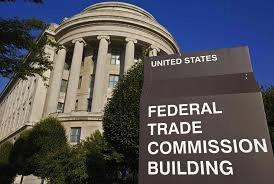 A new buzz-concept, Climate-Smart-Agriculture (CSA) is gaining greater attention from large supermarket chains and their consumers. This innovation requires adoption of sustainable farming practices, conservation of resources and action to reduce greenhouse gas emissions.
A new buzz-concept, Climate-Smart-Agriculture (CSA) is gaining greater attention from large supermarket chains and their consumers. This innovation requires adoption of sustainable farming practices, conservation of resources and action to reduce greenhouse gas emissions.
Alan Sachs and Allyn L. Stern of the law firm Beveridge and Diamond, LP recently reviewed CSA claims with specific reference to possible legal action by advocacy groups or regulatory agencies.
Green Washing in the form of misrepresentation or distortion of data relating to the environmental impact of products or production systems will undergo scrutiny by the Federal Trade Commission. Section 5 of the FTC Act prohibits unfair or deceptive acts or practices. The Lanham Act can be used to force producers to cease misleading or deceptive advertising.
Sachs and Stern suggest the following criteria in establishing CSA claims: -
- Only make statements or claims that can be substantiated with data and scientific verification. FTC regulations require evidence of “test analyses, research or studies conducted in an objective manner by qualified persons and generally accepted in the profession to yield accurate and reliable results”.
- Labels and packaging should not include deceptive images. Depicting hens in a pasture with green foliage creates the impression among consumers that eggs were so produced, irrespective of the actual housing systems or management practices used.
- Adherence to FTC guidelines for environmental marketing claims is necessary to avoid challenges. The FTC has issued a Green Guide relating to CSA claims and how consumers perceive text and images. The FTC Green Guide clearly describes stages of increasing control, defined as Scope 1: relating to direct emissions of greenhouse gases; Scope 2: involving indirect emissions from power and refrigeration and Scope 3: emissions that are indirect and are incorporated into the inward and outward supply chains.

The FTC intends to revise the Guide to define “carbon neutral”, “carbon negative” and “net zero”.
- CSA claims should be evaluated from the perspective of consumers. Both the federal government and individual states enforce truth-in-advertising laws that are based on what a reasonable consumer may infer from a claim on a label or package. The FTC and state regulators also review company and product websites and evaluate these statements in relation to Company operations.
- As attorneys, the authors of the report advise consultation on CSA claims, since decisions on text and images depend on interpretation. There is frequently a conflict between marketing intent and legal restraints that requires value judgment to confer promotional and competitive advantages without creating vulnerability to legal action.
The bottom line is not to state or claim anything that you would not like your Mother to see at point of sale.